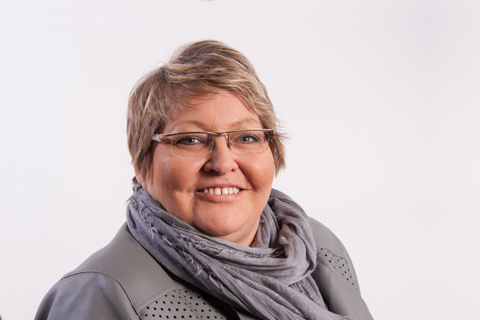The Federation of Sovereign Indigenous Nations (FSIN) put out a pair of press releases on March 8 in honour of International Women’s Day.
“We would like to acknowledge the achievements and successes of First Nations women in Saskatchewan,” Vice Chief Heather Bear said.
“While we have a long way to go to achieve equality for First Nations women. We have also come a long way despite the challenges and biases against us. It is important we celebrate and take pride in our accomplishments. It has been just over 50 years since First Nations women were granted the right to vote and First Nations women have since become elected leaders, doctors, lawyers, judges, academics and CEOs to name a few.”
While women in Canada fought for and won the right to vote in 1921, First Nations women were not granted it until 1960. First Nations women in Canada face greater challenges and barriers to success because of systemic racism and sexism, FSIN said. They cited examples such as a lack of equity in employment, pay equity, discrimination against mothers in the workplace and a lack of equal representation in elected positions.
“We are truly proud of all the women that we have had the privilege to work with over the years. They have opened so many doors for the next generation of women and we must all celebrate and lift up our women as the matriarchs of our families and communities,” said Chief Bobby Cameron.
“They are our healers, our guides, our givers of life and our nurturers. They are our grandmothers, mothers, sisters, daughters and granddaughters. On this International Day of Women, I call upon all First Nations men to honour the women in your life and community. Remember your roles as protectors and supporters – live that every day. Our women are under attack with so many missing and murdered. We saw another example of the hate towards First Nations through social media this past weekend. We need to stand up for them.”
The FSIN joined with the Saskatchewan First Nations Women’s Commission to lift up all women in celebration of International Women’s Day.
The day, they said, is intended to bring awareness to women’s rights, gender equality and to celebrate women’s achievements.
“Speaking in terms of First Nations women, sadly too many are still searching for justice,” says FSIN Vice Chief Heather Bear. “Some of the issues that need to be addressed are centred on the inequalities and vulnerabilities experienced by First Nations women. As First Nation leadership, I believe it’s important to highlight societal breakdowns that continue to negatively impact our women.”
Bear said the FSIN continues to wait for the implementation in the 2341 calls to justice from the MMIWG inquiry. Justice, the FSIN said, is still out of reach.
“There is no question that systemic racism continues to plague health institutions,” says First Nations lawyer, Alisa Lombard, who also notes that there are 67 reported cases of coerced sterilization in Saskatchewan
“Systemic solutions are immediately required across all spheres of public health systems and institutions. Such systemic renovations must be informed by the lived experiences of those who have survived the devastation of forced sterilization and other reproductive rights violations. Substantive equality and the right to life, liberty and security of the person are constitutional rights to which all are legally entitled.”
In federal corrections, women make up 40 per cent of the population, despite only representing four percent of women in Canada. At Pine Grove, in Prince Albert, women make up to 90 per cent of the inmate population, despite only being 16 per cent of the provincial population.
“First Nations women in the Canadian justice system are overrepresented and underserved,” the FSIN said in a press release.
“They do not have accessible community services and lack support due to shortage of resources and are often forced to serve remand time in correctional facilities. Statistics prove that Saskatchewan has three times the number of individuals serving remand time than other jurisdictions in Canada. “
The FSIN said that’s problematic, and the death of Kimberly Squirrel, who was found deceased after being released from remand at Pine Grove, proves the need to address shortfalls that endanger IFrst Nations women.
“We must remember the systemic barriers that were already there before COVID-19. We must address the new issues arising due to COVID-19 that further the marginalization of our women. The lack of resources and chronically underfunded institutions are systemically murdering our women and contributing to a crisis,” says Vice Chief Bear. “Institutional and systemic failings can be addressed by supporting more community-based services that incorporate cultural and trauma-informed programs that specifically address the systemic barriers that work against our women. As a reminder on this International Women’s Day, it is a day to celebrate all that women have accomplished. It is also a time to remember all the work that needs to be done. We must all seek a more inclusive society and unite in the fight to tear down systemic barriers for Indigenous women. There are too many injustices experienced by our women within the current systems and it’s the role of governments and decision-makers to recognize their hand in changing the status quo.”
The MMIWG calls for justice seek to address the barriers and lack of resources in institutions and communities through holistic practices and proper funding of community-based support to assist rehabilitation, the FSIN said. They added that Squirrel’s death is a reminder that there must be more community programming, resources and funding available to First Nations women.
The FSIN also addressed racist and sexist comments about Missing and Murdered Indigenous Women posted on social media over the weekend by two medical professionals.
The comments have been deleted, and the FSIN is calling for an investigation into the individuals who posted the comments.
The FSIN called on all Canadians to stand with First Nations women to fight for a safe and prosperous future for all.


